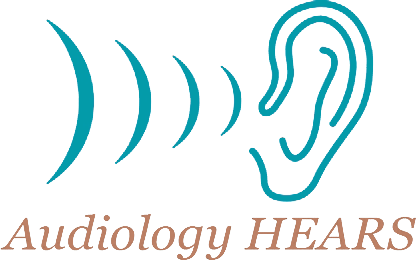Hearing loss is one of the most common health concerns that people face as we age. While about one-third of people aged 60–74 have hearing loss, about half of those aged 75 and up have it. Age-related hearing loss, the most common kind of hearing loss, can start affecting us as early as age 45, though it usually doesn’t become noticeable for decades after that.
Hearing Is Linked to Health
Hearing loss has sometimes been thought to be a kind of benign, if annoying, aspect of getting older. In fact, getting older does not necessarily have to include hearing loss. The Stanford Initiative to Cure Hearing Loss has noted that there is a genetic aspect to nearly every kind of hearing loss, but certain healthy behaviors can also help prevent hearing loss, or help lessen its severity in the event that it does come to pass.
Much like most aspects of health and well-being, good hearing is maintained by things like:
-
- Quitting Smoking – Smoking deprives your blood of oxygen, while filling it with poisonous chemicals. Both of these things are disastrous for the tiny structures inside your ears.
- Exercising Regularly – Getting 150 minutes of moderate-intensity cardio per week—or 70 minutes of high-intensity cardio—is helpful to maintain optimal health. Keeping your heart in good shape helps to protect your hearing. In fact, hearing loss that progresses faster than normal can be a sign of an undiagnosed underlying cardiovascular problem.
- Eating a Healthy Diet – Recent studies have found that those who closely adhered to an anti-inflammatory diet—such as Dietary Approaches to Stop Hypertension (DASH) or the Alternate Mediterranean Diet (AMED)—were significantly less likely to develop hearing loss over a four-year period.
- Getting Good Sleep and Reducing Stress – It’s important to get 7–9 hours of good sleep per night. Poor sleep and high stress can feed off of each other, eventually leading to a state of chronic stress in which the risk of hearing loss—not to mention plenty of other health concerns—is significantly increased.
When overall health is poor, hearing loss is much more likely to become an issue, and the severity of any hearing loss you do incur is likely to be higher.
Hearing Loss Linked to Cognitive Decline and Dementia
One of the major revelations of the past few years has been that hearing loss significantly increases the likelihood of developing cognitive decline and dementia. The risk increases with the severity of hearing loss:
- Mild Hearing Loss – Double the risk of dementia compared to normal hearing
- Moderate Hearing Loss – Three times the risk
- Severe Hearing Loss – Five times the risk
While it is not yet known exactly why hearing loss appears to promote cognitive decline and dementia, the connection is well-established. It should be noted that hearing loss is by no means a guarantee of developing dementia. If your risk of dementia is very low, then even multiplying that risk by five may still be a fairly low number.
However, there is some indication that hearing aids may help reduce the risk of cognitive decline and dementia that hearing loss poses. Hearing aids help increase the amount of information that your brain takes in, and that’s a very good thing! The old maxim, “use it or lose it,” really does apply when it comes to our cognitive abilities.
How Hearing Aids Can Help
While hearing aids likely help reduce the risk of dementia in those of us with hearing loss, they also do many other great things for our health and well-being. Our hearing is one of the primary ways we take in information from the world around us, and when we start to lose the ability to hear, it is common for people to feel ill at ease and uncomfortable in the world.
Indeed, those with untreated hearing loss tend to move around less, get outside less, and interact with others less often. A good set of hearing aids can all but eliminate these problems. Essentially, hearing aids allow you to keep living the lifestyle you enjoyed before hearing loss became an issue!
It’s best to start treating hearing loss with hearing aids as soon as mild hearing loss is discovered in a hearing test. If you haven’t had a hearing test recently, there’s no better time than now to make an appointment and find out how hearing aids can help you live your best life!
